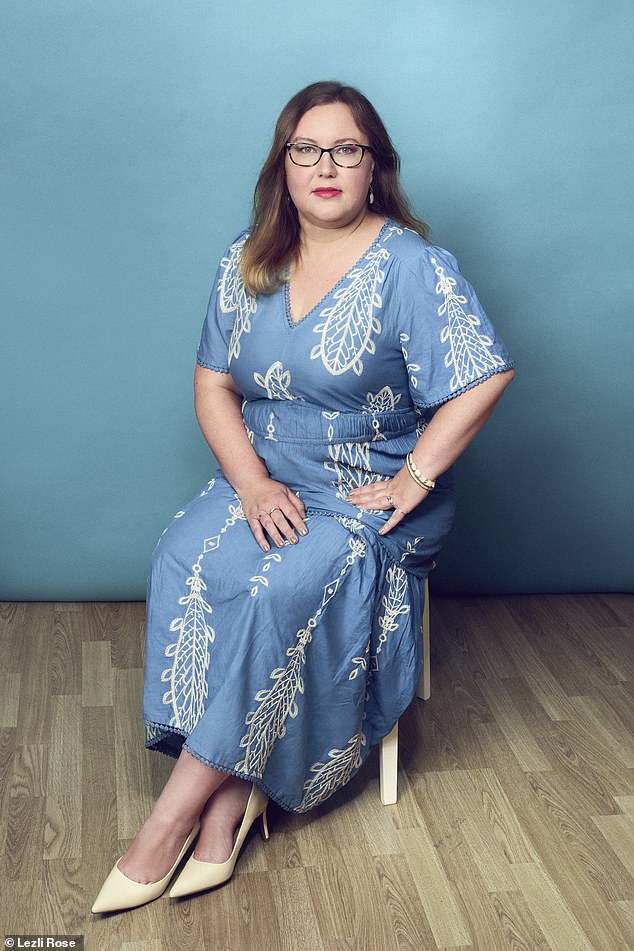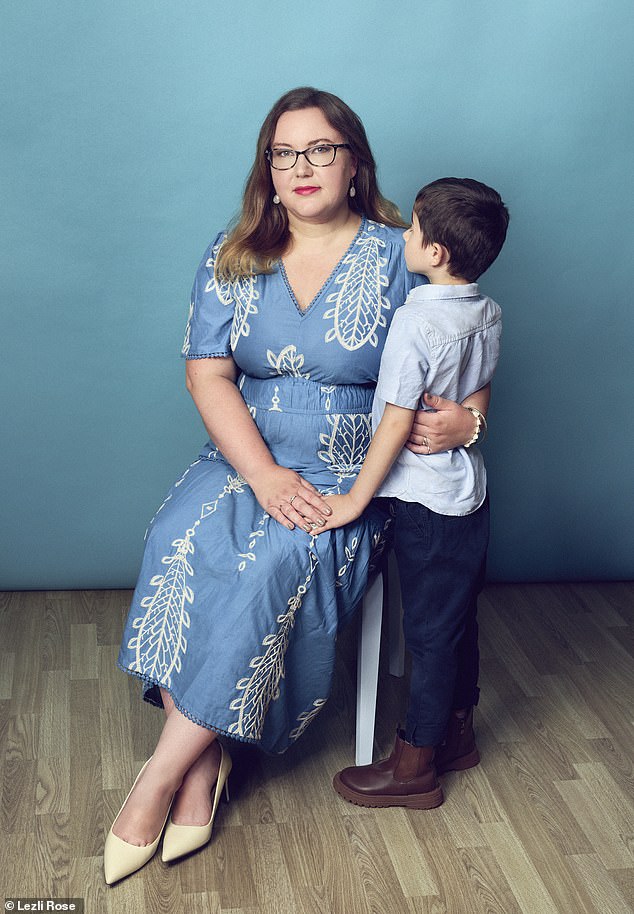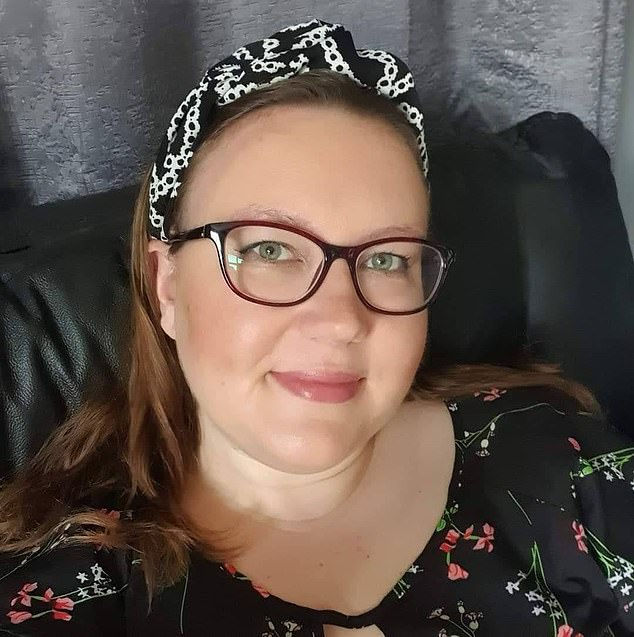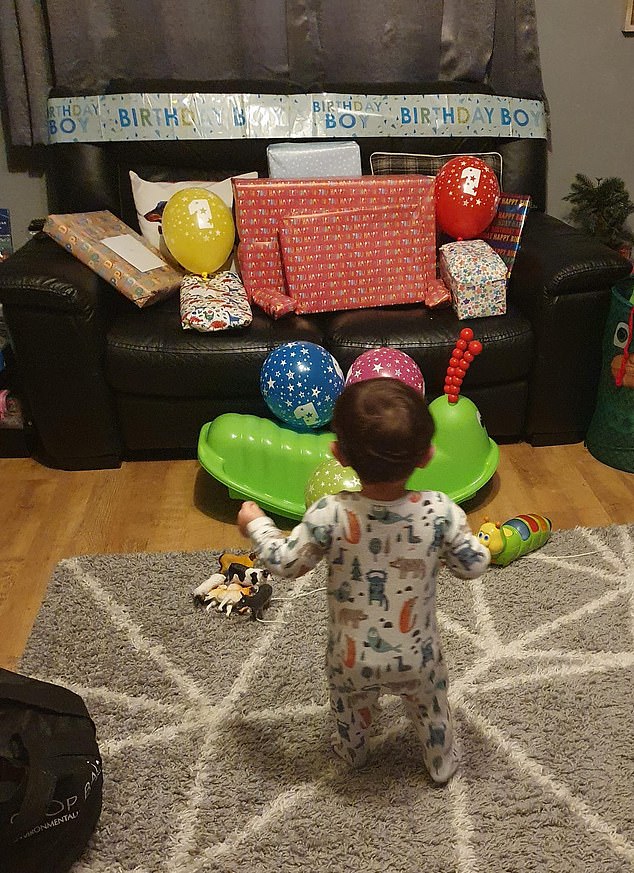The tears came without warning. I was standing in my baby son’s bedroom when I broke down on the phone to my GP and could barely speak through the sobs. ‘I don’t know what’s wrong with me,’ I said. ‘I should be happy.’
And I should have been happy – this is all I’d wanted, for so long. For ten, long, painful years of infertility I’d dreamed and prayed for this moment, when I’d finally be a mother.
But now little Charlie was here I just felt… empty.
It’s a sadly not uncommon lament from a first-time mother. Post-natal depression is a well-documented and cruel affliction, affecting one in ten women in the year after they give birth, and caused by multiple factors, including fluctuating hormones, anxiety and lack of sleep.
But I hadn’t given birth. We’d adopted Charlie five months earlier, when he was ten months old. Yet all the symptoms of post-natal depression were there.
Even my GP was confounded; he asked me what I wanted him to do to help me. If he didn’t know, I certainly didn’t. I just wanted someone to tell me what was wrong.
Eventually, I was diagnosed with post-adoption depression, or PAD, by my GP. It is a condition so rarely spoken about even medical professionals seemed unsure how to handle it.
Yet it is real – different from post-natal depression, but just as valid and as painful.

We tracked my cycle, spent a fortune on ovulation and pregnancy tests every month and timed everything perfectly, but nothing worked

Proud Jodie with her son Charlie, who is now five
My husband Darrell, now 38, and I had married in 2008 and started trying for a baby straight away. Every month that passed without a positive test was another blow. At first, we were hopeful; after all we were young and healthy.
After 12 months, we went to the doctor, who kept telling us to be patient, that it would happen.
But it didn’t. We tracked my cycle, spent a fortune on ovulation and pregnancy tests every month and timed everything perfectly, but nothing worked.
Every month, I cried when my period came, and Darrell would hug me. It just seemed so unfair; we ran out of ways to reassure each other.
We didn’t tell anyone we were struggling until my sister announced she was pregnant in 2016. That day, the floodgates opened and I broke down in tears to my mum. She had no idea what we had been going through. With no small children in the family, the topic had never come up.
At the time, I worked in a baby room within a nursery. Every day I was looking after other people’s babies, cuddling them, caring for them – then handing them back. It was heartbreaking, so much so that I quit my job and went to work in M&S.
Finally, at the beginning of 2018, when I was 29, we made our first visit to a fertility clinic, where doctors confirmed there was zero chance we would ever conceive naturally and IVF was our only option. But, even then, there was no guarantee.
It was painful to hear that my body couldn’t do what a woman’s body was ‘meant’ to do, and that we had wasted so much time and money pursuing something that was never going to happen. Yet knowing also gave us clarity – at least we could now work out the next steps.
Because of the postcode lottery in the Cotswolds where we live, we would only get one free try of IVF on the NHS – after that we’d have to pay privately.
With a single round costing anywhere from £4,000, that simply wasn’t an option for us; I was working in retail and Darrell as a warehouse manager, and we certainly didn’t have a huge pot of savings to dip into. If we paid for the IVF, we would have been left with no money to raise a child. Plus, I didn’t want to put my body through something that might not work.
That’s when I realised being a mother doesn’t necessarily mean you have to be pregnant.
As we drove home from the fertility clinic, I turned to Darrell and said: ‘Let’s look into adoption then.’ We had never mentioned it before, but now it was the obvious choice. We just really wanted to be parents and build our own family – whatever form that took.

The adoption process was intense. We had to share everything – our relationship history, finances, even our childhood experiences

Darrell was a hands-on dad, and was brilliant with Charlie, so I couldn’t work out why I was so worried about leaving him
When we started researching, we decided we didn’t want to foster-to-adopt – where you foster a young baby, in the hope you can later adopt them – a process that leaves a chance that the child could be handed back to their birth parents if circumstances change. I knew that after so long trying for a baby, it would kill me if that were to happen.
So we decided to try to adopt a child under the age of three, never dreaming we would get a baby.
The adoption process was intense. We had to share everything – our relationship history, finances, even our childhood experiences. We were assigned a social worker and went through hours of preparation training, psychological evaluations and home checks.
It took a full year to be approved as adopters. Then came another year of waiting during the matching process. It was a bit surreal – almost like a dating site. There’s a database where each child has a profile including a photo, personality traits and health notes. As prospective parents, we had our own profiles, too, listing our jobs, home and lifestyle.
At first, we avoided looking at photos. We wanted to choose based on compatibility, not appearances. But then I saw a photo of a little boy around three months old. He had the most adorable smile with dimples on both cheeks and my heart stopped. ‘That’s our boy,’ I told my husband – I just knew.
Funnily enough, the family finder had already bookmarked us as a potential match for him. It felt like fate.
We expressed interest in March 2020. Then the pandemic hit, and lockdown delayed everything. We couldn’t even meet him in person until that September. In the meantime, we sent him a photo book of us and our home, and a cuddly fox toy that we hoped he would bond with.
When we finally met him at his foster carers’ home, Charlie was nine months old. He was asleep in the front room when we got there, and we peeked through the glass door and saw him in his chair.
When he woke, one of the carers brought him in and put him on the floor to play. She wanted him to make his way to us when he was ready and, to my delight, he crawled straight over to us.
I had been so worried that after years of working as a nursery nurse I’d feel detached, but the feeling was like nothing I’d ever experienced before.
He wasn’t just another baby; he felt like ours.
We stayed nearby for nine days, gradually increasing our time with him. After that, his foster carers brought him to stay in a hotel near us, and he visited each day to get used to our home.
On the day after he moved in, he turned ten months old. It was October 2020, and he was officially our son. I felt like I was on cloud nine, finally a mum after so many years of hoping and dreaming.
We’d had his bedroom prepared for months, and that first night Darrell and I had planned to take it in turns to see to Charlie when he woke up. Every time he cried, however, we were both up and ready to settle him together. No one got much sleep that night, but we were so happy.
With experience working with children, I knew I’d manage the practical side – the bottles and nappies – but I was nervous about how love would develop.
In the end, it came easily. We bonded quickly and it felt like he’d always been part of our lives.
Still, our transition into parenthood was abrupt. We’d spent ten years preparing in our minds but, in reality, we had just two-and-a-half weeks between being officially matched and having a baby in our home.
At first, I was too busy to notice how I felt. I had nine months’ maternity leave to learn his routines, likes and dislikes, and adapt to the seismic shift in my life and identity.
Five months in, however, around the time the adoption was finalised in March 2021, making Charlie legally ours, cracks began to show.
I started crying regularly. I felt confused and flat, and I couldn’t relate to the other mums at baby groups. While they talked about breastfeeding and labour stories, I had nothing to add. I felt like an outsider.
It wasn’t that I was treated differently, but the conversations would invariably go towards why Charlie was adopted, and what had happened with his birth mother, who had been unable to care for him, though I never shared any details with them – it wasn’t my story to share.
I was also careful not to reveal we’d been trying to have a baby for ten years, as I definitely didn’t want people feeling sorry for me.
By the time my son was 17 months old, I was due to return to work – and that’s when the depression really took hold. I didn’t want to leave him. I’d waited so long to be a mum and now I was supposed to hand him over to Darrell, while I worked evening shifts.
Darrell was a hands-on dad, and was brilliant with Charlie, so I couldn’t work out why I was so worried about leaving him.
Part of my depression manifested as obsession. I had to do everything myself – every feed, bath and bedtime. I felt like I had a duty to do it, because I was now Charlie’s mum. Darrell was always happy to take on the routine, but I just found it so hard to let go.
It got to the point where I was crying all the time and didn’t want to go out. I stopped attending mum and baby groups altogether.
No one around me seemed to understand. Friends sympathised with the challenges of sleepless nights and toddler tantrums, but not with the intensity and emotional roller-coaster of the adoption process. How could they? They’d never been through it.
By this point, we had little to no contact with social workers, as the adoption order had been granted. But in the back of my mind there was always the thought that if I reached out to them, they might see me as a failure of a mother. Looking back, I realise that was a ridiculous thought, but in the moment that’s how I truly felt.
That’s when I eventually called my GP in tears. Because of Covid, I couldn’t visit in person, so I sobbed down the phone.
After asking me what I wanted them to do, they offered talking therapy, which I tried. But it was geared towards post-natal depression based on hormonal shifts, traumatic births or breastfeeding struggles.
I needed someone to acknowledge that I had just become a mother through adoption and that it came with its own set of emotional challenges.
So, on the GP’s recommendation, I started taking antidepressants, which saved me from going to a darker place.
I also found online groups for adoptive parents and, finally, I felt understood.
Other mums shared their own experiences of PAD, and suddenly my feelings didn’t seem so strange.
I was lucky to have such a supportive husband in Darrell. After a decade trying for a baby, a lengthy adoption process, plus PAD, I knew it could have been very different – but thankfully it was the making of our marriage.
Slowly, things began to shift. The antidepressants helped while I got my home and work-life balance in order, but then I started to feel numb. I’d gone from crying all the time to feeling nothing. I didn’t even shed a tear when watching an emotional film.
Darrell tried to support me the best he could – as much as I let him in – and I know he was desperately worried about me.
So, after taking the medication for two months, and with advice from my GP, I weaned myself off the antidepressants.
After six long months, I learned to give myself a break and finally enjoy being in the moment with my boy, rather than worrying and obsessing about what I was missing when I wasn’t there.
I was Charlie’s mum and as good – and as fallible – as any other mother, whatever path I’d taken to build my family.
Now, our son is five-and-a-half. He knows he’s adopted, and is happy to talk about it. He tells people ‘Mummy and Daddy chose me,’ which I love.
We have letterbox contact with his biological parents once a year and will continue for as long as he’s happy to do so.
We currently have no plans to have face-to-face contact, but if that’s something he wants to do when he’s an adult, we’re open to having that conversation then.
I love that he’s proud of his story, and I now speak openly about the adoption process and the joys it’s brought us.
It’s not always considered by couples struggling to conceive, but it’s been the best decision we ever made.
I’m also open about post-adoption depression, how it’s perfectly OK not to be OK, especially in those vulnerable first months. I just wish there was more awareness and support for adoptive parents like us.
There is some support available, but it’s not always well-funded, and only this year we saw services cut back and financial support reduced.
My biggest piece of advice to adoptive parents is to find your tribe. I’ve joined various support groups for adoptive parents, and we chat online and share advice.
I’ve taken part in adoption events, offered advice and spoken about my experiences on social media.
I’ve made some wonderful friends, one of whom’s child came from the same foster carers as Charlie. We are so similar, and it feels so good to have her in my corner whenever I need her.
We may not have pregnancy or birth stories to share, but we have our own unique experiences – both lows and highs – and just as much love for our children as other parents.
Most importantly, I no longer feel guilty for struggling. I went through something huge and now realise I’m only human.
I’ve become a stronger, more resilient mother and I love my child just as much as mums love their biological children. Post-adoption depression is nothing to be ashamed of.
As told to Julia Sidwell












